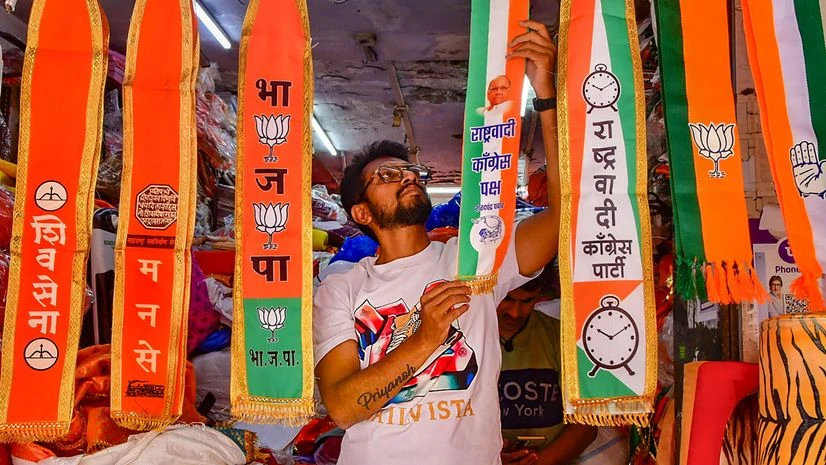In hopes of winning the coming Lok Sabha elections race, Karnataka candidates have stepped up their strategies by expanding the scope of freebies offered to the voters to include a wider array of attractions, the Times of India reported on Friday.
Poll officers, who have intensified their efforts to curb such practices, reported a wider spectrum of seizures from traditional items to more contemporary attractions. The newer attractions range from wristwatches, scented gutka, and grocery hampers to innovative Taiwanese devices capable of transforming regular TVs into smart ones.
Older attractions continue to prevail
According to Venkatesh Kumar, additional chief election officer of Karnataka, traditional offerings such as cookers, mixers, and saris continue to prevail, alongside newer incentives. The report also noted that Bidar, Shivamogga, Chikkamagaluru, and Kalaburagi districts emerged as the hotspots for such electoral enticements. The officers also reported seizing an "unusual" freebie, 4000 kg of pan masala worth Rs 10 lakh in Bidar.
"Grocery items are big among the seizures this time around…," Kumar told TOI. Such measures are banned as they violate the Model Code of Conduct, enforced by the poll body during elections for the sake of ensuring a level playing field.
JD(S)-Congress fight over the issue
The freebie issue in Karnataka has also become a flashpoint between the political rivals Congress and the Janata Dal (Secular). Following JD(S) President H D Deve Gowda's complaint against Congress MP DK Suresh over alleged freebies' distribution, the Election Commission, on March 26, issued directions to the chief electoral officer of Karnataka to take "immediate appropriate action" on the complaint for the Bengaluru (Rural) Lok Sabha seat.
More From This Section
"...There is not only dereliction of duties by the concerned officer but the officers are afraid of taking action against the present MP, who is the brother of D K Shivkumar, deputy chief minister…," Gowda alleged.
Populist measures such as freebies remain a critical debate during the election season as experts fear the ramifications of the undue political edge they might give to certain parties and candidates. This becomes a hurdle in ensuring fairness in the election process, a key foundation of any democratic nation.
Karnataka will go to polls in two phases in second and third stage on April 26 and May 7 respectively.
Karnataka will go to polls in two phases in second and third stage on April 26 and May 7 respectively.

)
